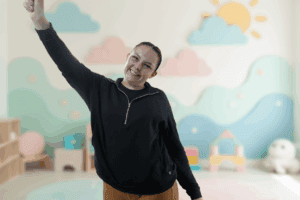StatsSA and the Department of Basic Education recently revealed the number of young girls who had given birth in the last year.

Protecting young girls from predatory environments is vital for their education and mental health.
Statistics South Africa (StatsSA) recently revealed the number of pre-teen girls giving birth, with the Department of Basic Education (DBE) explaining how it is mandated to deal with such incidents.
A children’s rights activist warned that the issue was far worse than just sexually active teens, but a culture of exploitation perpetuated by economic hardship.
Teenage pregnancy in schools
StatsSA recorded 123 971 births by mothers aged 19 and below between 1 January 2024 and 28 February this year.
Roughly 17% of those births were late registrations, with late registrations increasing to 20% for girls aged between 15 and 19, and jumping to 34% for girls aged 10 to 14.
StatsSA stated there were 2 108 live births registered for mothers aged between 10 and 14 during that reporting period.
The DBE confirmed in a written parliamentary reply last week that it had recorded 2 833 births or terminated pregnancies by pupils at health facilities between 1 April 2024 and the end of March this year.
Measured against StatsSA’s info, that would amount to roughly 730 pregnancies terminated by girls aged 10 to 14.
The DBE recently stated that it relied on schools to report pupil pregnancies but admitted the information was underreported.
In compiling the current data, the DBE receives information from the Department of Health based on incidents recorded at health facilities.
“While this dataset is not limited to learners, it serves as a reliable proxy for estimating the prevalence of learner pregnancies within this age group,” stated the department’s written reply.
Reporting challenges
Shaheda Omar, Clinical Director at The Teddy Bear Clinic, said that in working with pregnant girls, the lack of reporting was concerning.
“We have seen cases where there has been a disregard — no follow-through, no reporting — and it has just perpetuated itself,” Omar told The Citizen.
She explained that family dynamics and the “socio-economic strata” were leading girls to remain silent about the men involved.
“It could be uncles, or family members, or they get paid money, or there is some kind of material reward, and they will remain silent and accept it for the benefit; so we have to look at the economic circumstances,” said Omar.
“In some of the girls that we have dealt with, they have allowed this to continue simply due to the fact that their school fees are being paid [or] given luxury items.”
Mental health of pregnant teens
The Teddy Bear Clinic has been inundated with requests for support for pregnant teens, leading to an increase in intervention programmes.
“An overwhelming response was that it helped because there was somebody to hold them through this crisis — that they had that additional crutch to lean on for support,” said Omar.
Her organisation has forged greater ties with the Department of Social Development, as well as the Commission for Gender Equality and Section27.
However, Omar said that among the most heartbreaking factors of teenage pregnancies was the mental health of the girls.
She relayed how the girls felt trapped and that the experience “induced further trauma and anxiety”, manifesting in strong suicidal thoughts.
She added that these girls were emotionally vulnerable and greatly concerned about going back to school due to the stigma associated.
“That really raised a red flag for us and made us realise the importance as addressing health as a whole issue. There is no health if there is no mental,” Omar concluded.
DBE not tracking outcomes
The DBE said they are guided by two policy frameworks that categorise pupil pregnancies as child protection matters.
When pupils are below the age of 16, schools are legally obligated to report such cases as they constitute a criminal offence.
The DBE said school staff are regularly retrained on the matter, but stated they had not been compiling data on the outcomes of cases reported.
“The DBE does not maintain a standalone national database of criminal investigations or prosecutions relating to learner pregnancies, as these cases fall within the jurisdiction of Saps,” the department stated.
The DBE stated that it was working to improve collaboration with police and the Department of Justice to track the outcomes of criminal cases.
“In the interim, schools are required to submit quarterly reports to their provincial departments detailing pregnancy cases, including referrals made to Saps, DSD and health facilities.”
The DBE explained that the matter of teenage pregnancy required a “whole-of-government and whole-of-society approach,” so that girls could receive quality education.
“The DBE remains deeply concerned about the high number of pregnancies among learners aged 10 to 14, as these cases reflect serious violations of children’s rights and are criminal offences under South African law,” the department stated.
NOW READ: Statutory rape in South Africa: How many offenders were found guilty in last 10 months?






